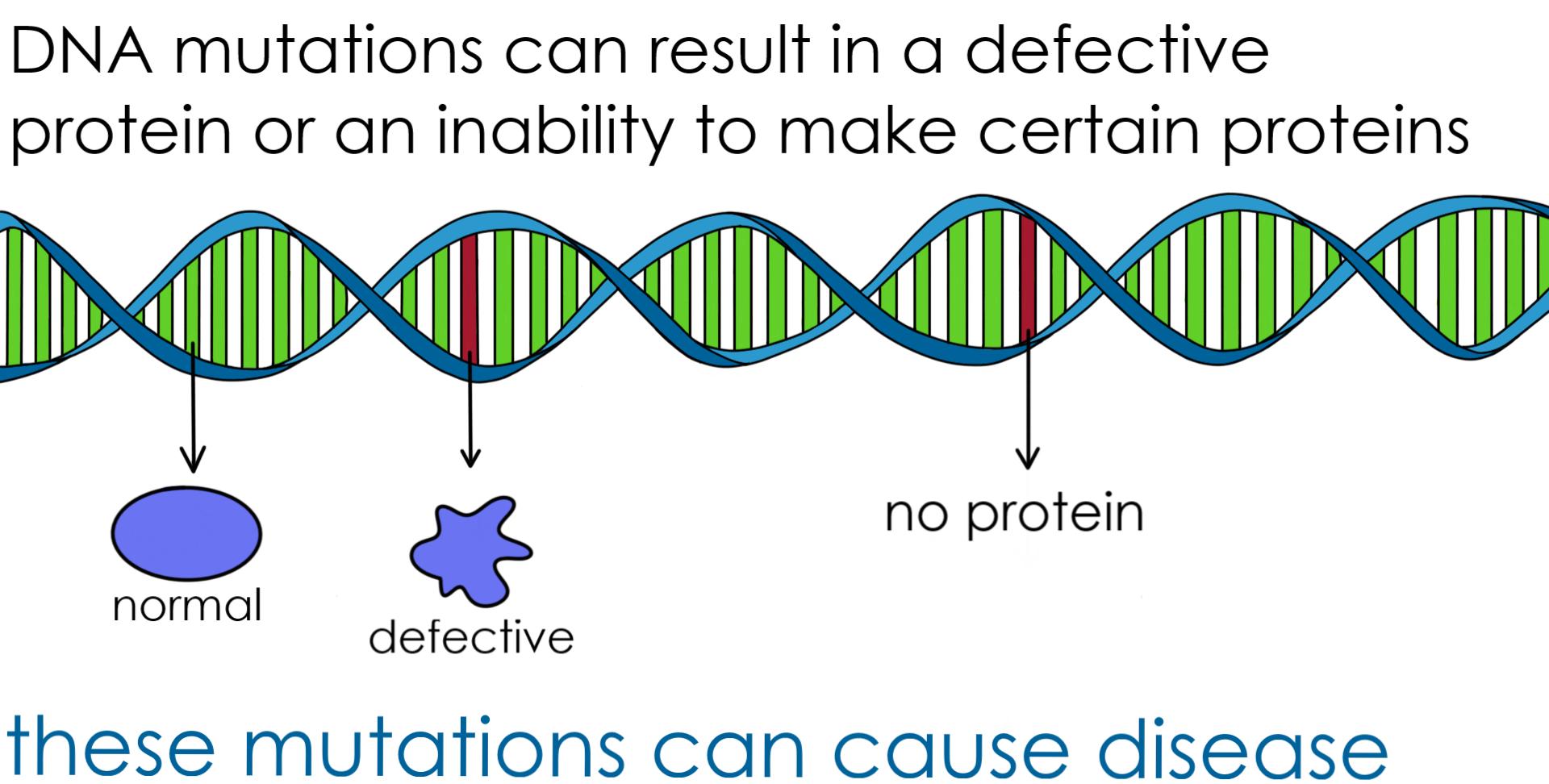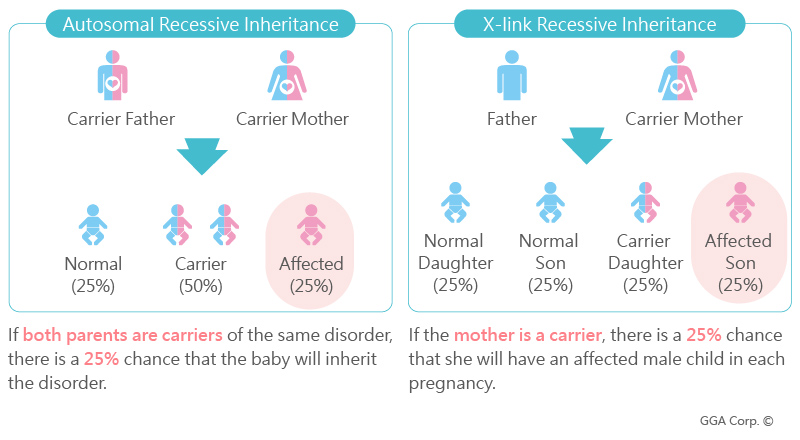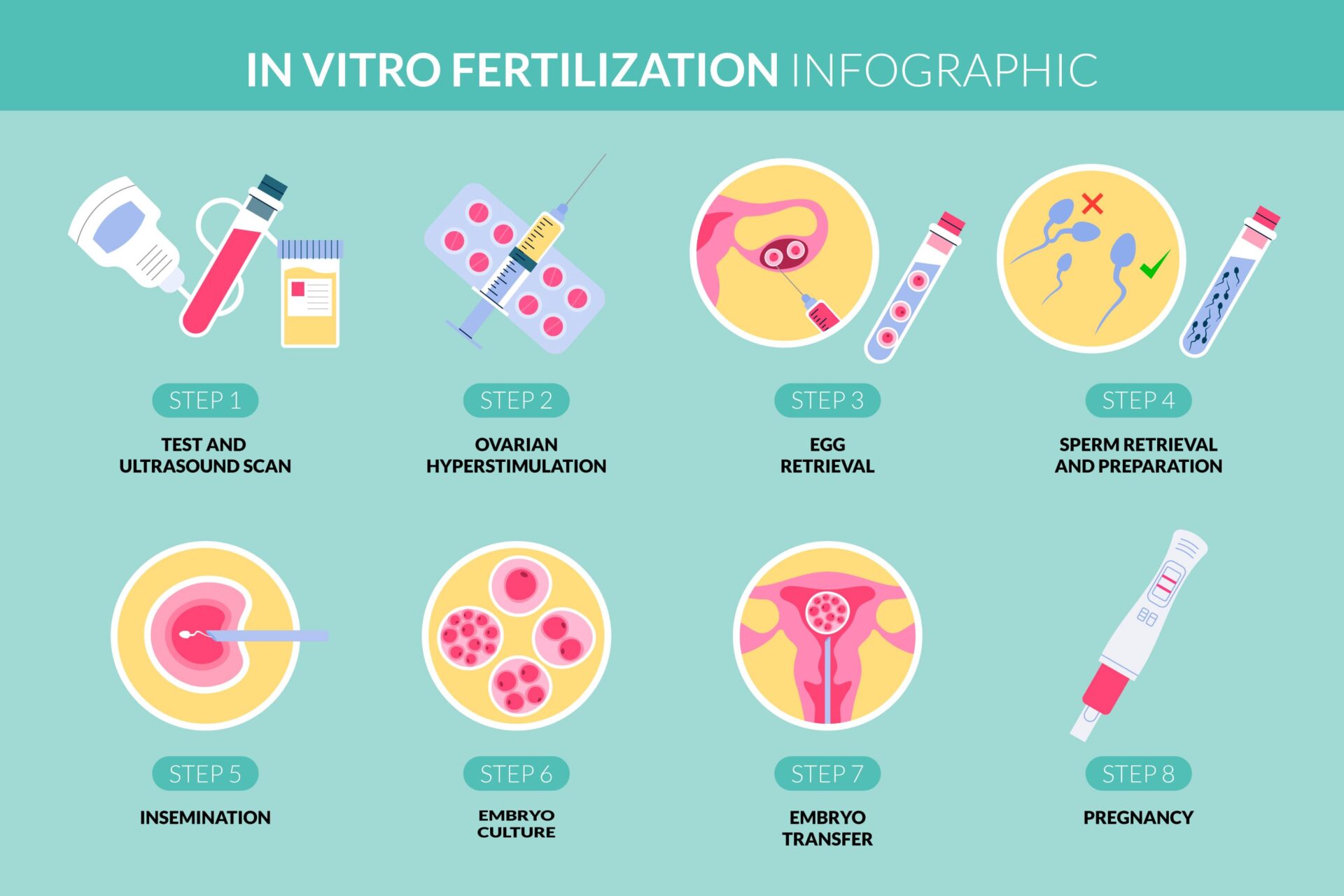
27 Aug Peace of Mind in Genetic Carrier Screening for Future Parents
Peace of Mind in Genetic Carrier Screening for Future Parents
By Island Hospital | August 27, 2025 10:34:09 AM
The decision to start a family is a monumental one, brimming with hope and careful planning. You pick out names, imagine tiny shoes, and dream of a lifetime of memories.
But beneath all the excitement lies a crucial, often overlooked, layer of preparation: understanding the hidden genetic blueprint you might pass on.
Many prospective parents, understandably focused on immediate health and lifestyle choices, are unaware that they could unknowingly carry genes for serious conditions that might affect their future children.
This is where genetic carrier screening becomes essential as a proactive step, offering a glimpse into your shared genetic landscape.
Empowering yourself with this knowledge offers the invaluable peace of mind to build the healthiest possible foundation for your family’s future.
Understanding Genetic Carrier Screening: What, Why, and When
Genetic carrier screening (GCS) is a test that determines if you or your partner carry genes for certain inherited conditions that could be passed on to your children. While you may be perfectly healthy, you could still be a “carrier” for a genetic condition without showing any symptoms.
Everyone has genes, which are like instructions that tell our bodies how to grow and function. You get two copies of almost every gene.

Sometimes, one of those copies can be “faulty” – meaning it doesn’t work quite right. If you have one working copy and one faulty copy of a gene, you’re called a carrier.
Being a carrier means:
- You’re healthy yourself and won’t have health problems.
- You can pass that faulty gene copy to your children.
If both you and your partner are carriers for the same condition, here’s what that means for your children:
- For every child you conceive, there’s a 1 in 4 chance (25%) they could be born with the condition.
- There’s also a 1 in 2 chance (50%) that each child will be a carrier, just like you.
Genetic carrier screening can check for a range of conditions, including well-known ones like cystic fibrosis, spinal muscular atrophy, and sickle cell disease.
Therefore, this screening is ideal before conception as it allows prospective parents to understand their risks and explore options, ensuring peace of mind and proactive planning.
The Science and Scope of Screening
Understanding how genetic conditions are inherited is key to appreciating the value of GCS.
Autosomal Recessive and X-linked Conditions
Most conditions screened are autosomal recessive, meaning a child inherits the condition only if both parents are carriers of the same genetic variation. If only one parent is a carrier, the child typically won’t have the condition but may become a carrier themselves.
X-linked conditions, on the other hand, are inherited differently. These conditions are caused by variations on the X chromosome.
Males are more frequently affected by X-linked conditions because they have only one X chromosome, while females have two.
If a mother is a carrier of an X-linked condition, each of her sons has a 50% chance of inheriting the condition, and each of her daughters has a 50% chance of being a carrier.
Types of Screening
There are generally two types of genetic carrier screening:
- Targeted Screening
This approach focuses on screening for specific genetic conditions based on an individual’s ethnic background or family history.These tests are often used when a family member has a known genetic condition, so others in the family can find out if they also have that specific variant.
- Expanded Carrier Screening (ECS)
This comprehensive screening tests for a wider range of genetic conditions, often hundreds, regardless of ethnicity or family history.
ECS offers a more thorough assessment of risk and is increasingly recommended for all couples planning a family, providing broader peace of mind.
For information on sexual health and preventing infections that could impact family planning, check out our article on: Sexually Transmitted Disease in Malaysia: What’s My Next Step?.
The Post-Screening Roadmap: Interpreting Results and Next Steps
Receiving your genetic screening results can certainly bring on some anxiety, but it’s important to remember these results are a powerful tool for smarter planning, not a source of immediate worry.
They offer invaluable insights that empower you to make informed decisions about your family’s future.
1. Understanding Your Results
There are generally two main outcomes you might see from genetic carrier screening:
- Low-Risk Status
The following result is often the most common outcome, meaning that you and your partner were not identified as carriers for the specific conditions screened.
While no test can guarantee a completely risk-free pregnancy (as new mutations can occur or other rare conditions might not be on the panel), this outcome significantly lowers the likelihood of your child inheriting the conditions tested for. This can offer considerable peace of mind as you move forward with your family planning.
- Carrier Status
This indicates that either you, your partner, or both of you, are carriers for one or more genetic conditions.
A “positive” result here doesn’t mean your child will be affected; instead, it means we can plan smarter. This crucial knowledge allows our team to provide you with personalised guidance and explore various options to minimise any potential risks.

For example, if both partners are carriers for an autosomal recessive condition (meaning a child needs two copies of the altered gene to develop the condition), there’s typically a 25% chance with each pregnancy that the child will inherit two copies of the altered gene and develop the condition. Understanding this percentage helps you and your medical team discuss the most appropriate next steps.
2. Practical Steps for Carriers
If you or your partner are identified as carriers, our dedicated team will provide a clear and compassionate roadmap for your next steps. This includes:
- Detailed Discussions
Our experienced genetic counselors at Island Hospital’s Fertility Centre will thoroughly explain your specific results, breaking down complex genetic concepts into understandable language.
- Fertility Options Exploration
Based on your unique situation and preferences, we will discuss a range of fertility options available. These might include, but are not limited to, preimplantation genetic testing (PGT) in conjunction with in-vitro fertilisation (IVF), using donor gametes, or even exploring adoption. Our goal is to help you understand all the possibilities so you can choose the path that feels right for your family.
- Emotional Support
We understand that receiving certain results can be emotionally challenging, bringing a mix of feelings from surprise to concern. Our counselors are here to provide compassionate and non-judgmental support, helping you process the information and navigate your emotions. You won’t go through this alone.
3. The Indispensable Role of Genetic Counseling
Genetic counseling is an absolutely vital part of the genetic carrier screening process. Our certified genetic counselors are highly trained professionals who play a crucial role in:
- Explaining Complex Information
They act as your guide through the intricacies of genetics, translating complex scientific concepts into clear, actionable information that you can easily understand.
- Risk Assessment
Beyond just explaining the results, they help you understand the specific implications and the precise risks to your future children, providing clarity on what the percentages truly mean for your family.
- Decision Support
They will walk you through all the various family planning options available and guide you towards making the best decisions that align with your values and goals. Importantly, they guide you without making any decisions for you.
- Emotional Support
Recognising the potential emotional impact of these results, they provide a confidential and supportive environment where you can openly discuss your concerns, anxieties, and hopes, helping to alleviate any stress you may feel.
Fertility Options and Family Planning for Carriers
For couples identified as carriers, there are several advanced fertility options available to help reduce the risk of passing on genetic conditions.
1. In Vitro Fertilisation (IVF) with Preimplantation Genetic Testing (PGT)

In Vitro Fertilisation (IVF) combined with Preimplantation Genetic Testing (PGT) is a highly effective option for carriers. During IVF, eggs are fertilised by sperm in a laboratory. PGT then involves testing a tiny sample from the embryos created, before they are implanted into the uterus.
This allows us to identify embryos that are free from the specific genetic condition, significantly reducing the risk of passing it on to your child. Our team has extensive experience in IVF with PGT, offering a tailored approach to maximise your chances of a healthy pregnancy.
2. Other Options
Depending on your specific situation, other options might be discussed, including:
- Prenatal Testing
If you are already pregnant, options like amniocentesis or chorionic villus sampling (CVS) can be performed to test the foetus for genetic conditions. These procedures involve taking a small sample of amniotic fluid or placental tissue for genetic analysis. Our specialists can explain the risks and benefits of these procedures.
- Alternative Family Planning Methods
For some individuals and couples, building a family might involve paths beyond biological conception.

Our counselors are here to discuss these alternative avenues openly and sensitively, including options like adoption. Every child deserves a loving home, and for children who are orphaned or in need of a permanent family, your love can make all the difference.
We can help you explore how adoption might align with your family planning goals, providing a pathway to nurture and cherish a child who needs it most.
Equip yourself in recognising the potential signs of ovarian cyst, increased risk factors, and when to seek medical attention in this article: Ovarian Cysts: Symptoms, Types, Prevention & Treatment.
Is Genetic Screening Worth the Investment?
The cost of genetic carrier screening can vary from basic to comprehensive screen tests.
Basic screening for a few common conditions might range from RM 800 to RM 2,000, while expanded carrier screening covering hundreds of conditions could range from RM 4,000 to RM 8,000 or more.
When considering these costs, it’s crucial to weigh them against the profound benefits.
Early knowledge allows for proactive planning, potentially preventing the birth of a child with a severe, lifelong genetic condition that could require extensive and costly medical care. For example, screening can reduce the risk of passing on conditions like Spinal Muscular Atrophy (SMA) by as much as 95% for couples identified as carriers.
The emotional and financial toll of managing a child with a severe genetic disorder far outweighs the cost of screening.
Affordability and Insurance
We understand that healthcare costs can be a concern. At Island Hospital, we strive to make genetic carrier screening accessible. We recommend checking with your insurance provider, as some policies may cover a portion of the screening costs, particularly if there’s a family history of genetic conditions. We can also discuss available hospital payment plans to ease the financial burden.
Take the First Step Towards Confident Family Planning!
Receiving your genetic screening results can certainly stir up a mix of emotions, from anticipation to a touch of anxiety. It’s completely normal to feel this way.
But here’s the reassuring truth: these results aren’t a source of immediate worry. Instead, they’re a powerful, personal tool for smarter planning, offering the insights you need to start your family’s journey
Let Island Hospital be your guide through every stage, from advanced screening, comprehensive genetic counseling, and a range of supportive fertility options tailored to your journey.
Discover how our Fertility Centre services can support you every step of the way – connect with us today!
FAQ
Will results stress me out?
It’s natural to feel some anxiety while waiting for or receiving results. However, our experienced genetic counsellors are dedicated to explaining results clearly and comprehensively, addressing all your concerns and helping to ease any stress. The goal is to help you understand information, not to overwhelm you.
Is screening necessary if we’re healthy?
Yes, absolutely. Many genetic conditions are recessive, meaning individuals can be healthy carriers without showing any symptoms themselves. In fact, it’s estimated that 1 in 25 people carry a recessive gene for a serious genetic condition without knowing it. Genetic carrier screening is the only way to identify these hidden risks before conception.
How do I prepare for screening?
Preparation is generally minimal. It’s helpful to discuss your family medical history with your partner and any close relatives beforehand, as this information can be valuable during your consultation with our genetic counsellors. Beyond that, no special dietary restrictions or preparations are typically needed for the blood or saliva sample.
What are the advantages and disadvantages of genetic carrier screening?
Advantages:
- Informed Decisions: Empowers couples to make educated decisions about family planning.
- Peace of Mind: Provides reassurance for those with low-risk results.
- Proactive Planning: Allows carriers to explore fertility options like IVF with PGT to reduce risks.
- Early Intervention: For some conditions, early diagnosis can lead to better management or treatment.
Disadvantages:
- Anxiety: Waiting for and interpreting results can cause stress.
- False Positives/Negatives: While highly accurate, no test is 100% perfect.
- Emotional Impact: A positive carrier result can lead to difficult emotional discussions and decisions.
- Cost: While an investment, the cost can be a consideration for some.
How can I test if I’m already pregnant?
If you are already pregnant, genetic carrier screening can still be performed. However, the options for managing identified risks may change. In such cases, your healthcare provider might discuss prenatal diagnostic tests such as amniocentesis or chorionic villus sampling (CVS), which can definitively diagnose certain genetic conditions in the foetus.
These procedures are typically performed during the second trimester (amniocentesis) or first trimester (CVS) of pregnancy. It’s crucial to discuss these options and their implications with your doctor or a genetic counsellor to understand what is suitable for your situation.






